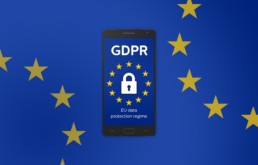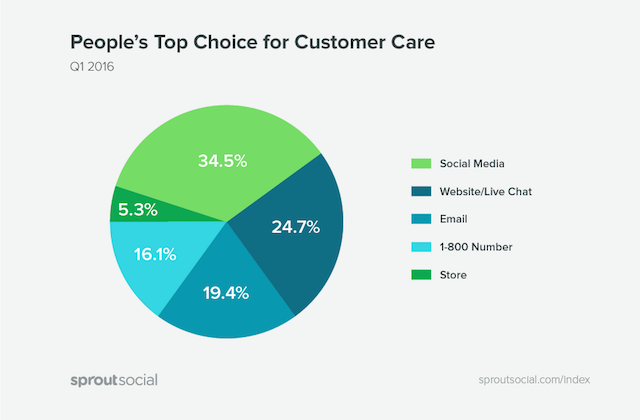6 things to consider before creating your website
So you need a new website. Take it from us - you'll save yourself a lot of hassle by doing some simple research before diving into the deep end.
We get loads of people asking us where to start and what they should consider when building a website, which is great - we love working through the process from start to finish - but if you're looking to get the ball rolling quickly (or are just super-organised), we've compiled a list of what we think are the 6 essential factors you should consider.
This might sound obvious, but you need to have a clear objective for your website. Is it to create an online presence for your company? Is it for personal use, such as a blog or portfolio? Are you selling products? Is your website a place for customers/clients to contact you? Without a clear objective, it's almost impossible to get started.
Research your competitors' websites or find websites you like the look of. Not only will this help to narrow down your website's objective, but will give us an idea of what kind of style and design you want to achieve from your new website.
This is arguably the most important factor for a quick turnaround. You may already have a website and are happy with the content - that's fine, it's easy to transfer copy. If you have absolutely no content AT ALL, you need some. Whether you write it yourself or get someone to write it for you, the content helps to create a site map (a map of where everything goes on your website), which is the basis of any website. We have a brilliant copyrighter if you need some (or a lot!) of new content.
Without branding, your website has no identity. Even if your site is intended for personal use, there still needs to be an element of branding - "Joe Blogg's Portfolio" will suffice! For large companies, we're talking logos and any other branding material you may already have. Alternatively, we can design all kinds of branding material if you're looking to spruce up or modernise your current branding identity.
Your colour scheme may coincide with your branding, or maybe you have a clear vision of you’re your website will look like. Colours aren't necessarily the be-all and end-all, but it definitely helps to know the “feel” you're going for from the outset. We understand that picking colours to use on your website isn't as easy as it sounds (there are SO. MANY. COLOURS) but we're pretty well-tuned at picking colours that complement each other.
Last but definitely not least, images. Images images images. When was the last time you visited a (good) website without any images? We bet it's NEVER. Images of products, your local area, your team members, your premises, images of EVERYTHING relevant to your website/company are useful. The more personable, the better. We can use stock photos, but these aren't always a great idea, especially if you want your website to be totally individual and specific to your company (anyone can buy and use stock photos). It's also best to keep your images up-to-date, so if you're revamping an old website with old images, we'd recommend getting a professional in to take high-quality updated photos or even a state-of-the-art video. It'll be worth it, trust us!
Of course there are plenty of other factors you need to consider when building a website, but these 6 points are a great starting point. If you can nail the above nuts and bolts (excuse the pun) you're at a really great starting point. In fact, we'd say you're ready to take the plunge!
So what's stopping you? We'd love to hear from you. Just click here to get the ball rolling.
See what our clients have to say about working with us.
Email etiquette: Do you fall foul of these pet peeves?
269 billion emails were sent every day in 2017.
It’s no surprise that we’ve reached a point of ’email etiquette’ – unwritten rules about how emails should be written, read, and sent. The thing is, not everyone abides by these rules and it can get pretty frustrating.
So, what’s getting on our nerves about emails? We’ve listed our top offenders below.
DO “Reply to all”
Let’s say we are sending an email to person A and CC’ing person B and C. When person A replies, they don’t “reply to all”. Why?! Think about it: person B and C have been copied in for a reason, probably because they have some sort of involvement in the matter, yet when person A responds, they are ignoring those two people who probably need to know what’s going on.
The only occasion whereby you should omit the persons CC’d is if the conversation turns into something that does not involve them. Maybe they’re in Accounts and you’re now discussing design with person A – it’s perfectly acceptable to remove B and C from the conversation. Otherwise, PLEASE REPLY ALL.
NB: We should also state it’s imperative you only CC people necessary – no one wants to receive unwanted emails, ever.
No email signature
If we had a pound for every time we’ve tried to find someone’s contact details in their email signature, only to find they don’t have one, we’d be rich. Or at least £100 better off. You should make it as easy as possible for your customers or clients to be able to contact you. Adding your phone number and website address to your email signature not only achieves this but drives traffic to your website. Better yet, it’s completely free to do. It’s a no-brainer!
Clear subject lines
Remember when we said 269 billion emails are sent every day?* Think about how many emails you receive daily. Now think again – how many of these emails have a clear, concise subject line? We can’t stress enough how important a good subject line is, and quite frankly, we’re much more likely attend to an email with a clear subject line as opposed to a confusing one – or worse – NO subject line. If you deal with multiple clients/locations/stores/teams, try to structure your subject line like this: who – what – action. For example, “Wimbledon Tennis – Social media strategy – Decision needed”. Easy.
Beware of the dreaded typo.

Businesses that use anonymous email addresses
Have you ever received a generic response from a company signed off with “Sales Team” or something similar? We understand why small businesses might use this tactic – to appear larger – but wouldn’t you much rather know who you’re talking to? Even just a first name will suffice. It makes your correspondence much more personal and tells your customer/client who to contact in the future if required.
Proof-reading
Before you click “send”, take a quick glance at your email. You’ll be surprised how many emails we receive with typos and whole sentences missing. This can be extremely frustrating, especially when these are instructions that need to be followed. We use Grammarly to flag our typos and grammatical errors.
What annoys you about emails? We’d love to know. Comment below and who knows, we might even add it to our list…
GDPR: How we help you
How does GDPR affect the data stored on your website hosted by Terra Ferma Media? Yes, but it's all under control writes David Fernando.
The GDPR deadline (25th May 2018) is almost upon us. Businesses across the EU have been slowly waking up to the notion that certain things need to be in order to be completely compliant with the new legislation. If you haven’t yet got on board with any of this, the best source of information in the UK is the Information Commissioner’s Office (ICO), specifically here.
But how does GDPR affect the data stored on your website hosted by Terra Ferma Media? Don’t worry, we’ve got your back.
"Don't worry, we've got your back"
As the owner of your website, you are what’s known as the controller and owner of your customer data. By working with that data on your behalf, we, Terra Ferma Media is the processor of that data.
Here’s a few other things we’re also doing on your behalf:
- We’ll be writing to those of you who need to update any sign-up forms that may be present on your websites.
- We’ll also flag up to those of you that should have an updated privacy policy on your site (and suggest a sample for you to use which we can then upload).
- If we design and distribute e-newsletters on your behalf, the system we use is already GDPR compliant. However, we do suggest that any customers who have not opened one of your emails for some time be removed from the mailing list.
- If you host your website with us, don’t worry, you’re already covered.
Our hosting partner, WP Engine, is the world’s largest WordPress website hosting specialist, renowned for being tip-top secure (as well as fast, easy to work with and all that other good stuff). On the matter of GDPR, they state,
“WP Engine continually monitors developments in data security, privacy, and compliance around the globe, and we have invested considerable resources in preparing for EU Regulation 2016/679 (“GDPR”) which comes into force May 25, 2018. We have always upheld the core principles behind GDPR, as evidenced by our early adoption of the EU-US and Swiss-US Privacy Shield programs, and take very seriously the trust our customers place in us when they choose to store personal data on our platform.
WP Engine will comply with GDPR’s requirements, both as a controller of our customers’ account data and a processor of the end-user personal data our customers control. In support of our customers’ own compliance efforts, we are updating our privacy terms to reflect the obligations we have as a processor under GDPR. ”
So there you have it. If you host your website through Terra Ferma Media, the data you store will be protected in compliance with GDPR.
This is made even more secure by the fact that all sites hosted with us have SSL certificates, meaning that any data transmitted during the normal operation of your website is encrypted and cannot be accessed by unauthorised 3rd parties.
So whilst there are other areas of your business you will need to audit for GDPR compliance, at least you know that your website, hosted by Terra Ferma Media will be fully compliant.
The AI Revolution: What is it and why will it matter?
AI is the buzz word in today’s tech world. Artificial Intelligence is leaping out of science fiction and into reality. But what is it? And how does it differ from what we think it is in films and books? Web Development Manager, Adam Leone examines...
Whereas film directors like James Cameron and the like will have us believe that artificial intelligence involves legions of time travelling, Austrian flavoured robots seeking to destroy the human race – the truth of the matter is that we’re nowhere near that point and we’re unlikely to see the day that technology takes over humanity. (Personally, I’m more worried more about some of the people in power than a bunch of robots).
The reason being is that Amazon, Google, Facebook, IBM, and Microsoft have recently formed a partnership that evolves around Artificial Intelligence and its benefit to people and society. This organisation is called the Partnership on Artificial Intelligence to Benefit People and Society – a super catchy title if I say so myself! Their aim is to set the principals on what AI is and what it should be used for as the industry develops.
"With artificial intelligence we’re summoning the demon."
- Elon Musk
What is AI?
To answer this question as simply as possible, it’s best to understand the principals of a normal computer, which work like this…
- Input – We input some data in the form of symbols, numbers, equations…etc.
- Processing – The computer manipulates the inputted data based on a set of algorithms. An algorithm is a set of rules that we the human has set that are then followed
- Output – the result of the above symbols and processed rules on a screen, piece of paper, server or hard drive
With AI however…
- Input – input consists of sight (symbols, objects), sound (language, music, noises), touch (temperature, texture, pressure), smell (odours, minute particles) or taste (chemicals, sweet, sour, ingredients)
- Processing – The computer uses the input and uses pattern matching, logic, problem solving and knowledge representation (the key ingredient) to determine the output
- Output – The computer will react based on the above. The reaction could be anything from printing something on a screen to launching a series of nuclear warheads…
Why does AI matter?
AI matters because it’s a completely new technology and will form a whole new industry. With all new technologies and industries, it will either complement or disrupt the world in which we live. This is assuming that AI will explode into the mainstream.
According to Stephen Hawking, humanity is hindered by evolution, which is a slow process taking place over the course of thousands of years, compared to the growth in processing power outlined in Moors Law.
AI machines could soon replace jobs and history tells us that unemployment is a by product of all technological advances. Elon Musk has described the birth of AI as “summoning the demon” which in its self is a very telling indictment. Essentially what he means is, we don’t know what we’re dealing with.
Alternatively, if artificial intelligence is in fact, artificial (fake intelligence) based on what we, the human race, tell it – does this mean that AI will lack the ability to innovate? In which case, the moveable definition of what a robot is will become no more than a convenience item for every home. Wouldn’t it be great if all of the things that take up time in our lives (like cooking, cleaning, ironing, washing…etc) could be done by a machine, based on a lifestyles.
What do I think?
I’ve only done some light research for the purposes of this article and it’s safe to say that there’s swathes of documentation on AI and it’s potential to the human race, be it good or bad.
I haven’t yet made up my mind on whether AI is something that should be explored or stifled.
If AI does form a new industry, I believe that it should be more regulated than other technologies. We should keep on top of developments in Artificial Intelligence so that it doesn’t lead to the destruction of mankind.
Is that really too much to ask?
Is social media targeting ads based on our conversations?
Have you ever mentioned a product in spoken conversation only to be advertised that exact product on social media hours later? We have.
There could be a number of reasons for this, but we’re going to discuss the two most plausible explanations: either algorithms are much more sophisticated than we think, or companies are listening to our conversations through our mobile microphones. So which is true?
We feed sensitive information to all sorts of hungry machines from the moment we wake up until the moment we fall asleep. In fact, some of us track what’s happening to us even whilst we sleep. Our devices and phones know where we are, the route we used to get there, who we’re likely to talk to, and can predict when we’ll be on the move again. And that’s readily available information – think about what we manually input; Do you take photos of your food? Do you track your steps and calorie intake? Do you monitor your heart rate and sleep pattern? Do you use internet banking? Technology knows a lot about us.
Over the past few years users have suspected social media platforms of listening in on conversations through mobile phone microphones. For good reason too, as with the emergence of virtual assistants (Siri, Alexa, Cortana, Google Home) we’re talking to technology more than ever. But here’s the conundrum: how much of this information is shared? I’m not the only one who has been targeted with extremely particular advertising on social media. So how do the likes of Facebook know what I’m talking about?
Theory one: our phones are listening to us
Do our phones listen to our conversations?
Google and Facebook categorically reject accusations that they are listening to our conversations to advertise to us. The thing is, this doesn’t mean they aren’t listening. As pointed out by Terra Ferma Media MD David, if you have an android phone, Google IS listening to and recording your conversations. It’s highly likely that Apple users have the same issue, but there’s no way to turn this off yet. So they’re listening, but both social giants insist they aren’t using this information for advertising. Facebook released a statement about this in 2016.
Google has a developer policy that all app developers must agree to that specifies apps must not breach privacy in this way (you can get lost in the policy here).
It’s also worth reminding you that Facebook owns WhatsApp and Instagram. Google owns YouTube and Google Maps. The point is these companies have a lot of information about us, whether we like it or not, and are using this information to their advantage.
Theory two: it's just a clever algorithm
Is it just a clever algorithm?
Every social media platform is governed by algorithms. Twitter is a good example of this with its trending topics; a live, fast-moving algorithm that displays the most popular topics based on a number of rules (how many people are talking about the topic, at what speed the topic arose, how many verified users are talking about it, if it’s a breaking news item, etc).
Facebook probably uses the most advanced algorithms in the game. The benefit Facebook has over other platforms is the plethora of your friends’ data. Facebook knows who your family is, who your partner is (and ex-partners), and who your closest friends are based on interactions. You and your close friends probably have a similar way of thinking, or are interested in similar topics, so Facebook will assume that anything your closest friends are talking about will be of interest to you. This also means whatever your friends are searching for, reading, liking, hiding, and following could also be of interest to you. This is how clever targeted advertising comes into play.
We also can’t ignore the fact that companies advertising on Facebook have a huge range of data available to them. They can target people living in certain locations of particular genders and ages, people who attend certain schools or workplaces, commuters, people with particular interests, and so much more. Combined, these two methods of data gathering is probably the outcome of the adverts you’re seeing. No hocus pocus.
Our advice? Keep talking.
Finally, to cover all bases, we need to mention cookies and remarketing. A cookie (apart from being delicious) is a small code left on every web page you visit, telling the website owners which pages you’ve clicked on. Take Amazon: you’ve probably browsed something on the Amazon website only to see that product advertised to you on Facebook too. This is because Amazon remembers what you’ve looked at (via a cookie) and uses their advertising space on Facebook to show this product to you again (remarketing). Even if you searched for something months ago, if Amazon wants to sell it to you, it will advertise that product to you.
So where does this leave us? Facebook and Google both deny using the microphones on our phones to listen in to our conversations for advertising purposes. Can we believe them? On the algorithm side of the coin, there are three things at play:
- Sophisticated algorithms taking data from your extended friendship groups
- Companies having excessive amounts of advertising data to target specific audiences
- Social platforms storing information about your online habits
These factors combined make a convincing case that could make you think you’re being listened to. It really is that clever.
Ultimately we don’t have the magic answer, and of course if large companies were indeed using our conversations to advertise to us, they wouldn’t exactly shout it from the rooftops.
Our advice? Keep talking. While there’s no evidence of any wrong doing, if you are being targeted with relevant ads, then what’s the harm? If you’re that worried why not start talking about the lottery and see what happens. You never know…
A phone is a phone is a phone
Andrew Marsh - one of our mid-50's Company Directors - discusses the current use of mobile phones, and its associated terminology.
We still refer to our mobile device as a phone don’t we? “Where’s my phone?” we exclaim in exasperation, frantically collecting our keys, wallets/purses as we dash out the house. “What phone have you got?” we ask when we compare with the Joneses. The truth of the matter is that with modern day usage a mobile phone is not just for calling or texting anymore, however we still refer to it as a phone.
Some generations of mobile phone users deploy their phones for, almost literally, everything except calling or texting. Yes, I know, I’m a mid-50s Dad, but can I ever get hold of my teenage kids on their phones when I call or text them? The answer is, of course, an emphatic ‘No’ even although their phones are rarely more than six inches away at all times, day and night. It transpires that my teenagers hardly ever make or receive calls on their phones. This is an alien concept to them. And when I text them they tell me to message them instead. They use their phones constantly, but then that’s on message boards, social media, taking photos, ordering takeaways or taxis with equal ease and proficiency, making or watching videos and even streaming TV programmes or films. For this generation their phones aren’t phones at all. But they still regularly implore me with the mantra known to all parents, “Dad, I need a new phone”.
So what inspired me to pick on this topic? Well, I felt that it was my moral (and technical) obligation to speak up for the mid-50s masses who still use a phone as a phone in response to my colleague Sophie’s (our resident 25-year-old Account Executive) rather scathing review about the revived Nokia 3310. See her article here.
It got me thinking. This was a typical case in point where the mid-20s and younger still use the word ‘phone’ when an actual phone is practically the last thing they need.
"a truly simple, well-designed and reliable piece of kit"
In the office Sophie was somewhat sceptical about Nokia’s re-boot of their all-time classic model mobile phone, stating (off the record, you understand) that it’s a rubbish phone and she doesn’t see why anyone would buy it. According to (25-year-old, don’t forget) Sophie, the phone in question doesn’t do this and doesn’t do that. In effect, she was zeroing in on what it doesn’t do and all the things it lacks compared to the state-of-the-art smartphones we’re all using these days. It was pretty negative stuff I thought, rather than focussing on the real raison d’être for this piece of equipment: a truly simple, well-designed and reliable piece of kit… for when all you need is a phone to actually call and text. In debating the Nokia 3310 I highlighted the fact that it seems to be a really good phone, with robust build, good connectivity, long battery life, and it’s simple and uncomplicated. And as phones go it’s also very cheap.
So all in all an excellent phone and I feel that it will have many more users than Sophie pointed out in her article: the elderly, festival goers, phone detoxers and simply Nokia fans.
Purely because it seems to be a good old phone, then yes, the Nokia will have a wider range of users than perhaps at first expected, including users who want a reliable telephone, that doesn’t store very much personal and financial data, that they can use cross-borders without the risk of confiscation and that doesn’t compromise their personal identity and security. In this age of clever hackers we shouldn’t overlook the attraction of protecting our omnipresent identities.
I’ll come back to my original conundrum: why do we still refer to our phone as a phone? So what should we call this magical piece of equipment that we port around with us everywhere we go? This all-encompassing mobile device, performing the full suite of functions of a computer, with touchscreen interface, camera, Internet access, messaging facility to (almost) the entire global population and an operating system capable of running any form of downloaded apps you could possibly choose. I think the Nokia 3310 is a phone in its traditional sense. But the kit in everyone’s hands is far from being merely a phone. Although ‘mobile device’ seems a precise descriptor, even I would agree that those are four clunky syllables rather incongruously strung together. And ‘phone’ rolls off the tongue rather more easily…
How much is your privacy worth?
Do you think you behave differently when you know you're being watched? Web Development Manager Adam Leone discusses the issue of privacy in the ever-growing world of home devices and assistants.
In 2013, Dave Eggers wrote “The Circle” which is the story of Mae Holland and her place as a new employee at The Circle – a technology company aimed at developing new, sophisticated consumer based products.
After being recruited as a customer experience type person – Mae becomes overwhelmed with the facilities available for employees at The Circle, these include gyms, recreational activities, free food and parties… (Any of this sound familiar?)
The Circle is pioneering the SeeChange program, where participants wear a light, portable, camera that records every move and conversation that you make. Politicians are encouraged to wear them in a bid to become more transparent and appeal to voters. “Going transparent” is then coined as a term you use when you decide to enter the SeeChange program.
There’s a lot of toing and froing as to whether this is a good thing or not – this does after all make the world a more truthful place to live in.
I won’t spoil the story of Mae Holland for you – but the main focus is that The Circle has found a way to aggregate and store the moves and conversations of every individual – and then use that information to satisfy their own means. More importantly, they’ve made all of this reasonable and socially acceptable.
The Circle has been made into a film starring Emma Watson and Tom Hanks – and I for one can’t wait to see it!
"participants wear a light, portable, camera that records every move and conversation that you make"
Have you ever watched the Black Mirror episode called The Entire History of You? In this episode, the characters have been given a device called a “grain” which is implanted into their necks. The grain records everything they experience and they can then play back those moments in front of their own eyes, or on a screen. The story follows what impact the grain has both mentally and socially.
Becoming paranoid and less happy is a symptom of constantly going back through those experiences and analysing them. The sad part is, ultimately there’s nothing you can do about those actions except watch them over and over again. These experiences are stored somewhere at your request or approval.
The above may all sound a bit far-fetched, but is it?
It’s almost no secret that smartphones are recording your every move and conversations. We know we’re being tracked via GPS so that the maps app works perfectly. And we all have those moments whereby we look at the adverts on our phone or on a computer and realise “I was talking about that with so and so the other day…”
Google and Amazon have taken living in The Circle and recording the entire history of you one step further by selling their representatives (or assistants) to live in your own home – rent free, you’ll have to pay if you would like one of these.
I am of course talking about the new wave of home devices called Alexa and Google Home.
These devices can manage your temperature, music, shopping lists, other mobile devices – and you can even talk to them and ask questions. These devices are on all the time, so no need to worry about them breaking down or running out of battery. Great!
They are of course recording your private, home based conversations let’s not forget – but that’s OK, because you wouldn’t be doing anything you wouldn’t want anyone else to find out about right? So let’s say goodbye to privacy and rejoice at the age of transparency. How do you feel about that?
I’m not against home devices, but I’m just taking a moment to stop and think about the implications of owning one of these robots.
What is Google and Amazon selling here? What’s in the small print of owning one of these assistants? How much easier will our lives really be?
I can’t say that I’m convinced at this privacy trade off. Surely if Google, Amazon, Facebook and the like want to get hold of our thoughts via conversation – to sell to advertisers, shouldn’t they start paying us?
OK – their services are free to use, but surely this method of infiltrating someone’s private life now tips the balance? If they did pay you for this private information – how much is your privacy worth?
I’d love to know your thoughts, especially if you work for Google or Amazon!
Will anyone buy the revived Nokia 3310?
The world went crazy when the Nokia 3310 revival was announced, but will anyone actually buy it? We asked Sophie, our 25-year-old Account Executive, what she thinks.
In a questionable move to promote their latest smartphone, Nokia announced the revival of everyone’s favourite first mobile: the Nokia 3310. The limelight was instantly on the 3310, leaving any thoughts of their shiny new release in the dust. Does anyone even know what their new phone is called, or the features of it? Nope, not me.
So let’s talk 3310. Originally released in 2000, the phone was a huge hit with mobile users. At the time it was revolutionary – not only could you make calls and send texts remotely, but you could choose from multiple ringtones (and even create your own), play games and… Did I mention make calls and send texts remotely? Admittedly it’s hard to remember what the phone COULD do as opposed to now what it CAN’T do.
"A modern classic reimagined" - Nokia
So why have we come full circle? Looking back, the original 3310 has features I’m envious of even 17 years later.
It was indestructible. You could throw it onto concrete ground and it wouldn’t even crack your beloved personalised cover.
The battery lasted forever (OK, a week). Apart from when taking the phone out of its packaging for the first time, does anyone remember charging their 3310? The battery went on and on and on and on and…
Snake. Before Angry Birds and Candy Crush, there was Snake. The real MVP of the mobile gaming world, it still remains a sought-after classic.
However, there’s a huge, massive, BUT to this story. It’s been 17 years. Technology has moved on. We have moved on. We use phones differently now.
A lot has changed in seventeen years.
The new Nokia 3310 has SO MANY missing features from both modern day smartphones and the classic 3310, it’s almost embarrassing. Here are a few crucial missing features:
There is no internet. Well, with due respect, apparently there is a basic browser that can access basic versions of Facebook and Twitter. I’m not convinced.
There is no Wi-Fi. I’m not sure why you’d even bother to access the limited internet on Wi-Fi, but hey, you don’t have a choice either way.
The camera is rubbish. At 2MP, it’s a long way away from today’s phone cameras. Good luck uploading your rubbish photos to Facebook from your phone.
Snake isn’t Snake. This one I’m almost offended by. One of the main draws of the revived 3310 is that users can play Snake again, but this Snake is completely different. This one moves diagonally, in colour (reminiscent of Snake II), and it just looks wrong. Bad move Nokia.
No WhatsApp. Yep, that’s right. The new Nokia 3310 doesn’t support WhatsApp, the world’s most used messaging service.
The old-style keyboard. You’ll probably never forget how to text on a 3310 and just how fast you were at doing so. But part of the reason we were so good at texting on a 3310 was because everyone used text talk, back in the days when we were charged per character. With today’s intelligent spellcheckers and predictive texting, I think users will get fed up of the old school keyboard fairly quickly.
The battery life isn’t THAT great. Granted, any phone that lasts a whole day with vigorous use is music to my ears, but the classic 3310’s battery could last up to a week. The new 3310 battery is said to last anywhere from 22 hours up to one month (albeit on standby mode – so basically not using your phone at all). Useful.
"Play the legendary Snake" - you're not fooling me Nokia.
So who’s actually going to buy this phone? Here’s my comprehensive list:
- Elderly people
- Festival goers
- Phone detoxers
- People who only want to call and text
- Die-hard Nokia fans
…that’s it. No one else will buy, and more importantly, use this phone. At only £42, I suspect people might buy the revival just for laughs. It’s been called a “dumb phone” for a reason.
A quick “raise your hand” in our office revealed that no one will be swapping their smartphone for a 3310. Sorry Nokia, but I think you’ve gone too far on this nostalgia trip. And give us the original Snake back.
5 things beginner Social Media Managers should know
With 2.3 billion people using social media, it's no surprise that it has become a key pillar of companies' business strategies.
Major brands have dedicated teams looking after their social channels, but what if you don’t have the capacity for a social media team? If you’re about to embark on managing social media accounts, we think you’ll like these tips.
1. Use a dedicated Facebook account.
You’ll thank us for this one. To become an admin of a Facebook page you must link the page to a personal account. This means, day and night, you will receive notifications from business pages linked to your private account. You’ll be bombarded with likes, comments, and analytics from business pages and your personal notifications will become few and far between. So, create a new Facebook account to keep your personal and work accounts separate. If you need to keep on top of things you can still receive notifications, but if you don’t want to receive them out of working hours, you don’t have to. Bliss.
2. Audit, audit, audit.
It’s difficult to measure ROI with social media, but something you can track is the number of followers, reach, likes, comments and shares. Keeping on top of progress is essential for figuring out what sort of campaigns your audience responds to. Audit your channels once a month (always on the same date) to keep track of progress (or lack of). Improvements can always be made, but you need to know what’s working – and not working – beforehand.
A well thought out content plan will keep you and your client on track.
3. Create a content plan.
If you want to ‘do’ social media well, you need to plan. Posting ad-hoc day-by-day isn’t good enough when it comes to successful accounts. Yes, you need to stay current and keep an eye on the day’s news, but preparing a monthly plan is imperative. Outline key social dates as well as key dates for your business (product launches, offers, events). Your plan doesn’t need to be fancy – we use a Google Sheet – but make sure it’s clear, you include all social channels, and you have a way to share this information with other employees or clients. Hootsuite has a free social media plan you can download here.
4. Keep up with the Joneses.
Who are your competitors? What are they doing on social media? What’s the latest feature on Facebook advertising? What are the popular hashtags on Instagram? Don’t get left behind – social platforms release updates and new features all the time, and if you’re not in the know, you’re already lagging. We like to keep up with Mari Smith for Facebook updates, she really knows her stuff.
5. Have clear goals.
This might sound obvious, but it’s easy to get side tracked. Are you using social media to increase footfall in-store? To raise brand awareness online? To encourage conversation and interaction? To sell something? Whatever your goal is, stick to it. There’s not much point in advertising online if customers aren’t coming in-store – why not create an online offer that’s redeemable in-store only? Always keep your main objectives in mind.
What's happening with social media in 2017?
The social media world moves fast.
While it’s pretty much impossible to predict what will happen to social media this year, here are a number of trends you should keep a close eye on in 2017.
1. Paid content continues to soar
It’s extremely difficult for businesses to reach their audience with organic content. The answer to this problem is paid content (adverts), which is fast becoming a dog-eat-dog world as competition rises. Brands are paying more than ever to be seen online. Social media ad spend is estimated to surpass $41 billion in 2017.
2. Social commerce shakes up online purchasing
Customers want products, and they want them now. With 75% of consumers making a purchase because they saw it on social media, it’s no mystery why brands are bending backwards to sell on social media. Instagram’s instant purchase feature (a button under an image) is set to soar, and businesses are creating Instagram-specific pages where all items featured in a photo are listed. Brands are tapping into their follower’s emotions for purchases – 28% of consumers said a brand’s social presence was the biggest reason to try new products or services.
3. Customer service becomes a priority
34.5% of people choose to contact brands through social media for customer care, beating website/live-chat, email and phone methods (see below). Complaining on social media is public – everyone can see complaints – which forces brands to keep customers happy and up their reputation. The positive of this is that if your social media management is good, customers will also see you’re great at responding to issues. If it’s bad, well… You know the drill.
4. Millennials are moving away from Facebook
While Facebook still remains extremely popular, it is actually becoming more popular with non-millennials. 41% of millennials use Facebook every day, but it is their least popular social media platform, preferring YouTube, Instagram and Twitter. For younger millennials, disappearing content platforms are the bee’s knees. The allure of disappearing content is too tempting to ignore, with Snapchat reigning and Instagram following suit with Stories. Make sure you know where your target audience are hanging out online.
5. Live video
We can’t mention social media and 2017 without talking about video. In this case, live videos will dominate in 2017. Nothing is more in-the-moment than live video, and Facebook, Twitter and Instagram already offer brands the opportunity to create live videos. News channel CNN used a Facebook Live video during the inauguration of President Donald Trump, which gained over 4 million viewers.











